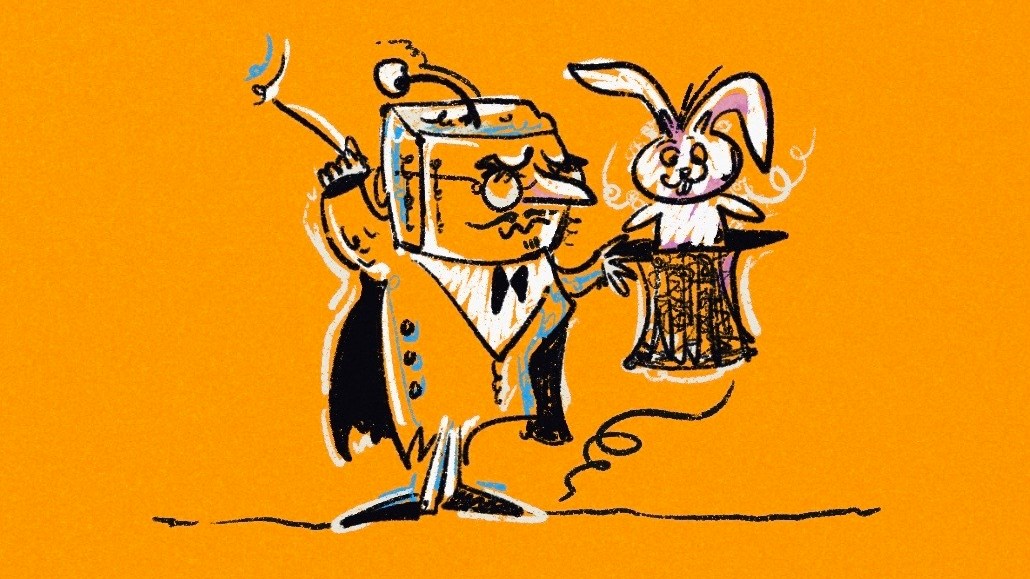Secure your place at the Digiday Media Buying Summit in Nashville, March 2-4
How U.S. Bank ‘dramatically’ cut the development time of its latest campaign with AI avatars

The hype cycle of AI in advertising is far from over — expect Cannes to be a hotbed for it.
Even so, amid the hype, there are marketers starting to spell out practical applications of AI in marketing now. Much of that use has been focused on chatbots and AI assistants as well as touting cost savings and personalization at a mass scale.
But U.S. Bank is taking a different approach to its practical use of AI. The financial giant recently turned to AI for research and focus group testing for its new creative. U.S. Bank worked with part-AI platform, part-agency Supernatural AI to make avatars of its customers and gut check how its proposed new messaging would perform with those customers to ultimately land on the new creative.
“Think about the segments that you’re trying to reach as a marketer,” said U.S. Bank CMO Michael Lacorazza. “We created these avatars inside of their system that use data to replicate [what it would be like to talk to them], almost as if they were alive humans but in an artificial intelligence way. Then what we could do is we could use the large language model to input reactions to the work. We did this in the strategic brief process as well to land in the brief.”
This approach led the bank to “dramatically shorten the development time” of the campaign, according to Lacorazza, who noted that typically for a new brand campaign, a company of U.S. Bank’s size might use multiple rounds of focus groups, online communities and other traditional research that can take several months to do. The typical timeline for a process like that is roughly nine months for a big brand, noted Lacorazza, which can be difficult to manage due to cultural shifts, as the time from initial idea to campaign rollout could make an idea irrelevant by the time it reaches the market.
“You have to be in the field for a certain amount of time, you have to get enough responses and then you have to do the analysis,” Lacorazza said of the typical timeline. “It lengthens your project by quite a lot.”
By working with Supernatural AI to create the digital avatar versions of audience profiles based on the typical consumers that U.S. Bank is looking to reach, the financial giant was able to go from brief to rollout in less than four months.
The use of AI was focused on “upfront strategy development as well as early creative concepts,” per Lacorazza. “And then once we got to the point where we were in production and so forth, that was all us and human.”
Supernatural AI was also responsible for the creative for the new campaign, which rolled out earlier this month.
The Supernatural AI platform “sits on an enterprise grade data stack, with various data sources including YouGov, which is the main source for audience avatars,” according to John Elder, co-founder and CEO of Supernatural AI. U.S. Bank isn’t the only marketer working with the company on digital avatars. The shop has clients in financial services, health care, automotive, travel, entertainment and CPG. It declined to share specific client names.
“If you spend less time doing, you can spend more time thinking and that leads to more effective advertising because you’re able to be more thoughtful about what you’re doing,” Michael Barrett, co-founder and chief strategy officer at Supernatural AI, said when asked why speed may be appealing to marketers.
Using AI for research and focus groups makes sense to Allen Adamson, brand consultant and co-founder of brand consultancy Metaforce. “Personifying the target is a really important criteria for prospective marketing,” said Adamson. “This will help more marketers do what only the more sophisticated marketers have been able to do, which is to crystallize and synthesize research and make it actionable.”
With that said, there’s also the risk that “AI gets it wrong,” noted Adamson. “If the AI, which can make mistakes, paints the wrong picture or personifies the wrong target, then you have a bullseye that’s off mark.”
More in Marketing

Thrive Market’s Amina Pasha believes brands that focus on trust will win in an AI-first world
Amina Pasha, CMO at Thrive Market, believes building trust can help brands differentiate themselves.

Despite flight to fame, celeb talent isn’t as sure a bet as CMOs think
Brands are leaning more heavily on celebrity talent in advertising. Marketers see guaranteed wins in working with big names, but there are hidden risks.

With AI backlash building, marketers reconsider their approach
With AI hype giving way to skepticism, advertisers are reassessing how the technology fits into their workflows and brand positioning.






